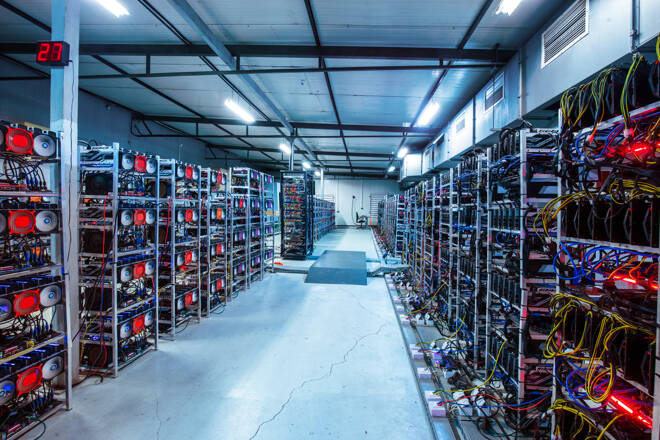Advertisement
Advertisement
Kenya Aims to Lure Bitcoin Mining Companies with Renewable Energy
By:
Kenya power company KenGen announces plans to offer surplus thermal power to bitcoin mining companies. The timing couldn't be better for miners.
Key Insights:
- Kenya power company KenGen extends an olive branch to beleaguered bitcoin miners looking for favorable alternatives to China, the US, and Eastern Europe.
- Last month, FX Empire reported on Beijing failing to deter bitcoin miners with an all-out ban on bitcoin mining.
- With jurisdictions including China, the US, the euro area, and Eastern Europe taking anti-bitcoin mining stances, the African nation could soon jump up the bitcoin mining rankings.
In July 2021, Beijing banned bitcoin (BTC) mining to support the government’s goal to become carbon neutral by 2060.
The outcome of the ban was a sharp increase in bitcoin mining across the US, resulting in the US becoming the largest bitcoin mining nation.
Last month, FX Empire reported on China bouncing back to become the second largest bitcoin mining nation. The move to the number two spot came despite Beijing’s blanket ban.
With Beijing likely to clamp down heavily on mining and US lawmakers also making strides in curbing the upward trend in proof-of-work mining, miners may need to consider alternative options.
Power Company KenGen Looks to Lure Bitcoin Mining Companies
On Thursday, news hit the wires of Kenyan electric power producer, KenGen, wanting to offer surplus geothermal power to bitcoin mining companies.
In terms of KenGen’s power generation mix, 39.2% is geothermal, with 45.3% hydro. Thermal (14.1%) and Wind (1.4%) make up the rest.
KenGen reportedly plans to allow miners to establish in an energy park at the Olkaria Geothermal Project, located within Hell’s Gate National Park 120km from Nairobi.
Geothermal energy is the earth crust’s natural heat, which KenGen extracts to generate electricity.
KenGen sees clean energy to power bitcoin mining as an opportunity to reduce carbon emissions resulting from carbon-based power sources.
KenGen Geothermal Development Director Peketsa Mwangi reportedly said,
“We have the space and the power is near, which helps stability.”
According to Cambridge Centre for Alternative Finance, African nations accounted for a negligible percentage of the global bitcoin mining hashrate.
As of January 2022, Libya (0.14%), Egypt (0.02%), Angola (0.01%), and South Africa (0.01%) were the largest mining nations in the African continent. Sudan, Morocco, Algeria, Ghana, Nigeria, Cameroon, Angola, Zimbabwe, and Kenya had trace amounts of bitcoin mining.
KenGen’s Olive Branch Comes at the Right Time for Bitcoin Miners
In January, US lawmakers targeted proof-of-work and bitcoin mining in particular. Democrats took an anti-bitcoin stance to support US President Joe Biden’s environmental goals.
Since then, there has been plenty of scrutiny over proof-of-work mining.
This week, the New York Senate passed a bill blocking new crypto mining companies sourcing power from carbon fuel sources.
In April, FX Empire reported on the new bill aiming to push bitcoin miners into renewable energy.
US lawmakers also called on the Environmental Protection Agency to target firms infringing on environmental laws.
The outcome was somewhat better for bitcoin miners in the Eurozone. Lawmakers voted out a proposed ban on proof-of-work mining. A ban would have led to the outright ban of bitcoin and Ethereum (ETH), amongst others.
Access to geothermal energy in a crypto-friendly jurisdiction will likely be well received. Surging fuel prices has added to the urgency to find alternative energy sources.
About the Author
Bob Masonauthor
With over 28 years of experience in the financial industry, Bob has worked with various global rating agencies and multinational banks. Currently he is covering currencies, commodities, alternative asset classes and global equities, focusing mostly on European and Asian markets.
Advertisement
